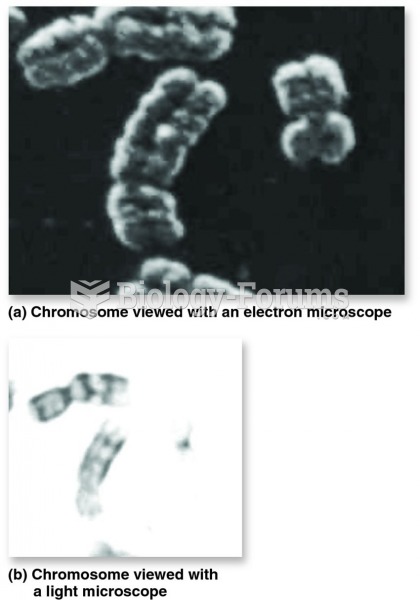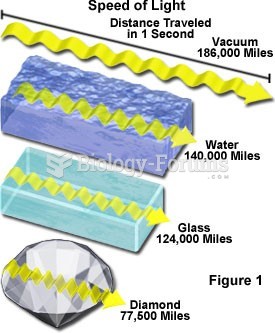This topic contains a solution. Click here to go to the answer
|
|
|
Did you know?
The types of cancer that alpha interferons are used to treat include hairy cell leukemia, melanoma, follicular non-Hodgkin's lymphoma, and AIDS-related Kaposi's sarcoma.
Did you know?
To maintain good kidney function, you should drink at least 3 quarts of water daily. Water dilutes urine and helps prevent concentrations of salts and minerals that can lead to kidney stone formation. Chronic dehydration is a major contributor to the development of kidney stones.
Did you know?
If you could remove all of your skin, it would weigh up to 5 pounds.
Did you know?
The longest a person has survived after a heart transplant is 24 years.
Did you know?
About 100 new prescription or over-the-counter drugs come into the U.S. market every year.







